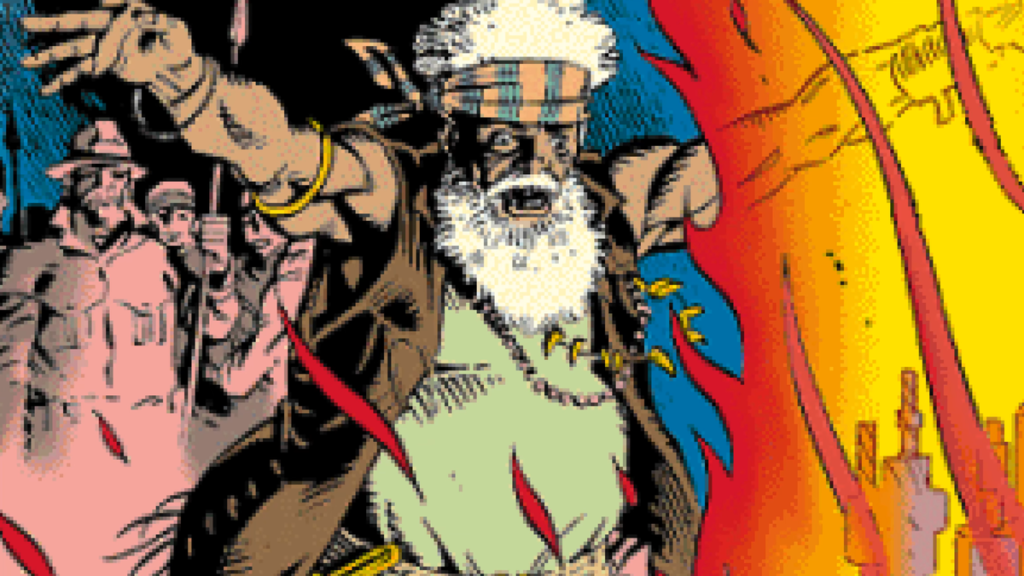The bar is high for video game voice acting in 2024, and with games like Baldur's Gate 3, Disco Elysium, and so many others elevating the scripts with strong performances, it's hard to accept anything less than excellence. But in the '90s, that was far more the exception than the rule, and PC Gamer recently discussed the topic with veteran game developers in a roundtable interview.
“One of the obstacles was their disdain for video games, first of all. It's like, 'I'm a real actor, but whatever it is, it's going to be ridiculous,'” said Prince of Persia creator and creator of Prince of Persia. said one Jordan Mechner. Adventure game “Last Express”.
Even if actors participated in the production of the game, at the time, especially in the case of rotoscoped productions like The Last Express, where the lines between analog and digital were blurred, the situations in which actors' performances were captured were difficult to capture. It was completely unknown to me.
“As a storyteller, trying to make the reality of this character and this world believable without having a set built with costumes and all the paraphernalia to set the mood was a challenge in itself. But it was so magical. Every time, the actors' eyes light up and they suddenly realize that this is a real character, a real situation, and they start doing what they can do and what they were trained to do.”
Chris Brown, who was an audio editor and director at LucasArts and then Ubisoft in the '90s, recalled that for most actors, “the only understanding of the medium was linear.”
“Explaining interactivity, accounting for the possibility of multiple outcomes, and tracking emotional consistency across multiple outcomes was all work. This was a learning process for us as well. How do you structure the script? How do you set up the script? Do you record it so that the actors can maintain their own emotional moments?”
As Mechner put it, “disrespect from actors” was a major challenge for other early adventure games that incorporated voice performances, like Charles Cecil's 1994 point-and-click Beneath a Steel Sky. At the time, Cecil's studio Revolution Software was small, with a team of about a dozen people creating games. It was his second game as project leader.
“My sister's friend's boyfriend was at the Royal Shakespeare Company, and he said, 'Oh, I'll get some of my friends together and set up a studio,'” he recalled. “The studio was actually his mate's front room in Balham High Street. You don't know Balham High Street, but all the buses would go by and everything would shake. It was a complete It was chaos. We actually didn't have a conference room.” [voice] I didn't really know what I wanted, the director, and I didn't really know what I wanted. So they say, “How about this?” And put a stupid voice on it. But I remember when they went out to lunch he said, “Come on, let's go to the pub.'' So I said, “Are you sure we should go to the pub?”
“'Yeah, okay, I'm sure you'll be fine. Let's relax.'” They came back about an hour and a half later, so I must have had about three pints, and I said, “Thank you for coming back.” . Then, wait a minute. “Hey guys, does anyone want to drink marijuana upstairs?” So they came down drunk and stoned. You can imagine the high quality.
“I appreciate it very much [publisher] Konami—American Konami has figured this out [recording] And he said, “We don't understand a word of it.” So we actually re-recorded it with the right actors and got it right. But it was a baptism of fire. ”
Mechner was fortunate to do better with The Last Express, perhaps due in part to its unique production process. Mechner explained that capturing his performance in The Last Express and his next game, 2003's Prince of Persia: The Sands of Time, was “the opposite of how most games are done.” .
“Instead of making the movie and then bringing in actors to do the voices, we started with just the sound room, had the actors do the dialogue, like in a radio play, and then created the animation and cutscenes later to match that. The idea was to have a more spontaneous and organic performance, but it actually gave the actors the possibility to improvise in the recording booth. It's the animator's job to bring in actors, let them do things, sometimes do crazy things, create new voices, etc., and then make the most of it and create the visuals to go with it. To do.”
Check out the rest of the 90s PC Gaming Veterans Roundtable on YouTube and Spotify embeds, or subscribe wherever you get your podcasts.


